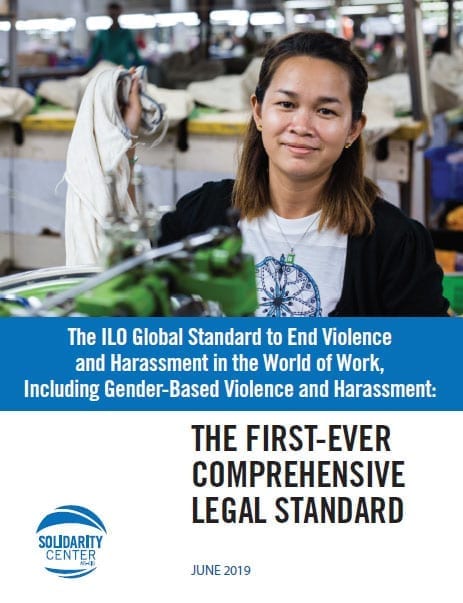
Jun 11, 2019
A Solidarity Center legal analysis shows the proposed ILO convention on gender-based violence and harassment at work is necessary because no global binding instrument exists that comprehensively addresses violence and harassment in the world of work, including gender-based violence and harassment.
Download here.
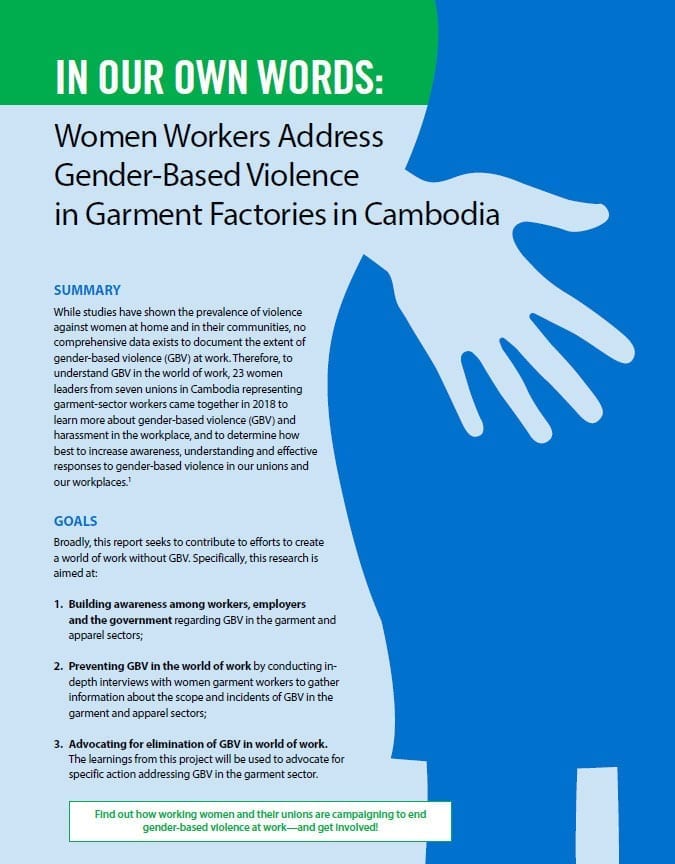
Jun 5, 2019
While studies have shown the prevalence of violence against women at home and in their communities, no comprehensive data exists to document the extent of gender-based violence (GBV) at work. To better understand GBV at work, 23 activists and female leaders of workers in seven Cambodian unions talked with garment workers. Here are their findings.
Download here.
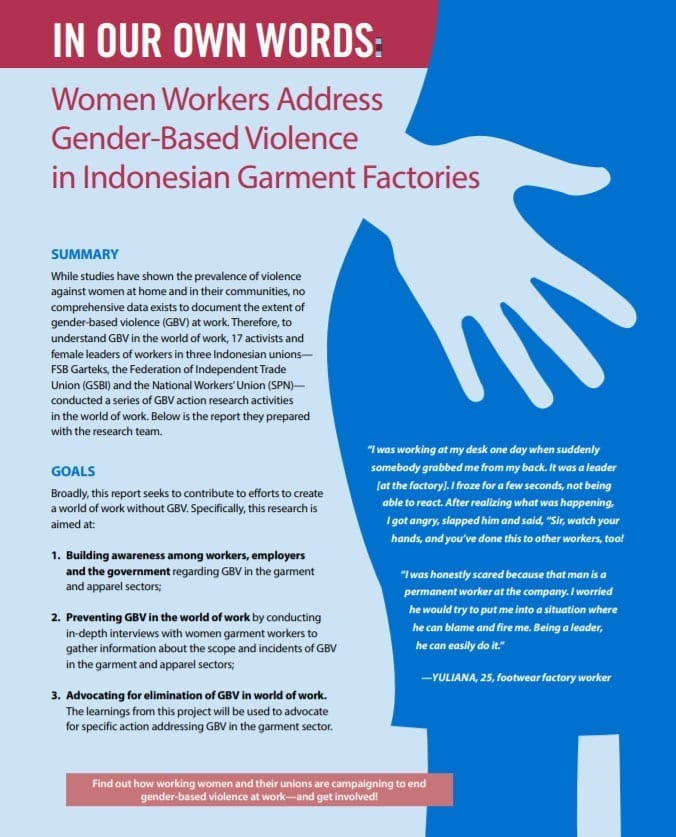
Jun 5, 2019
While studies have shown the prevalence of violence against women at home and in their communities, no comprehensive data exists to document the extent of gender-based violence (GBV) at work. To better understand GBV at work, 17 activists and female leaders of workers in three Indonesian unions talked with garment workers. Here are their findings.
Download here.
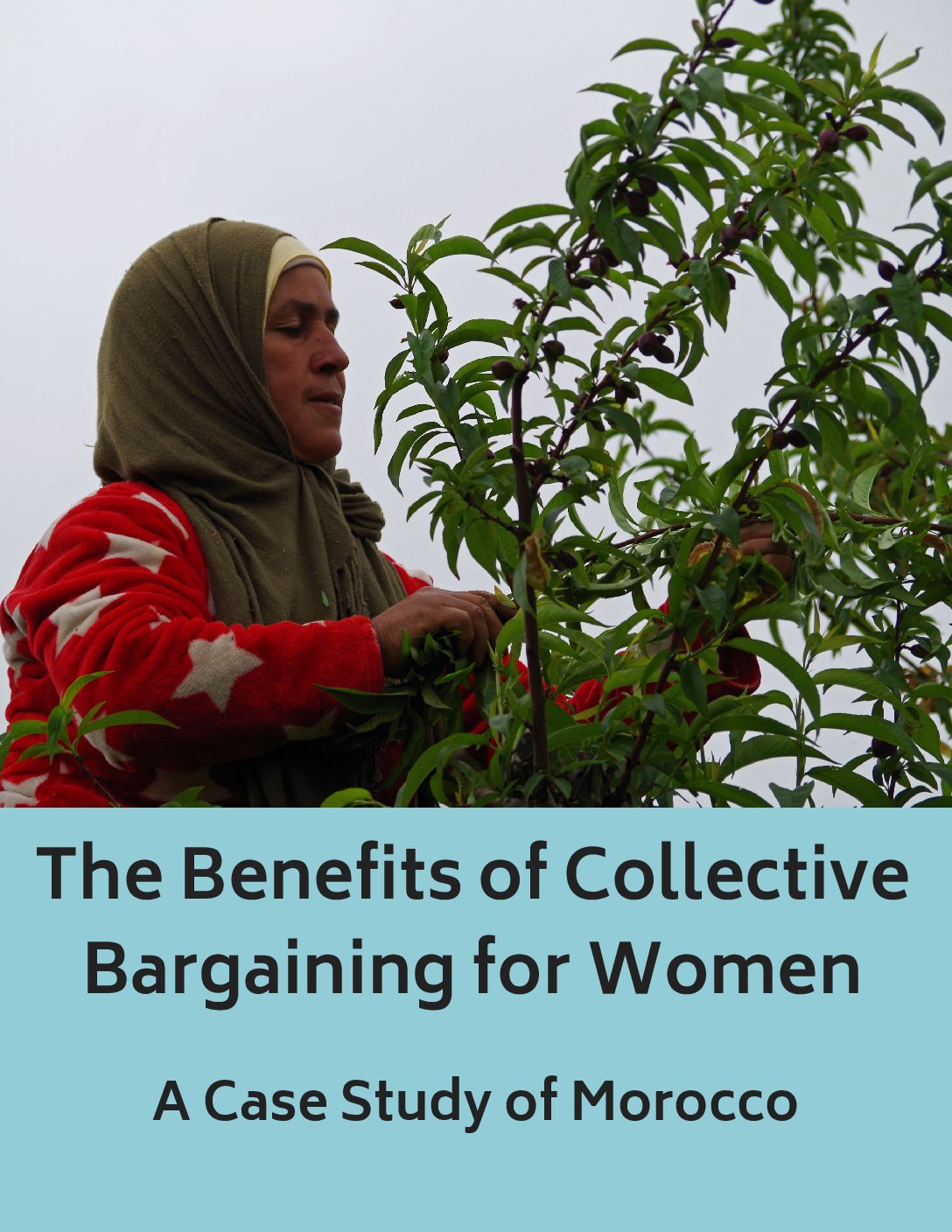
Feb 28, 2019
This study by the International Center for Research on Women (ICRW) and Solidarity Center finds women workers in Morocco’s fertile Meknes region are making big gains in gender equality on the job through their union, the Confédération Démocratique du Travail (CDT).
Download here.
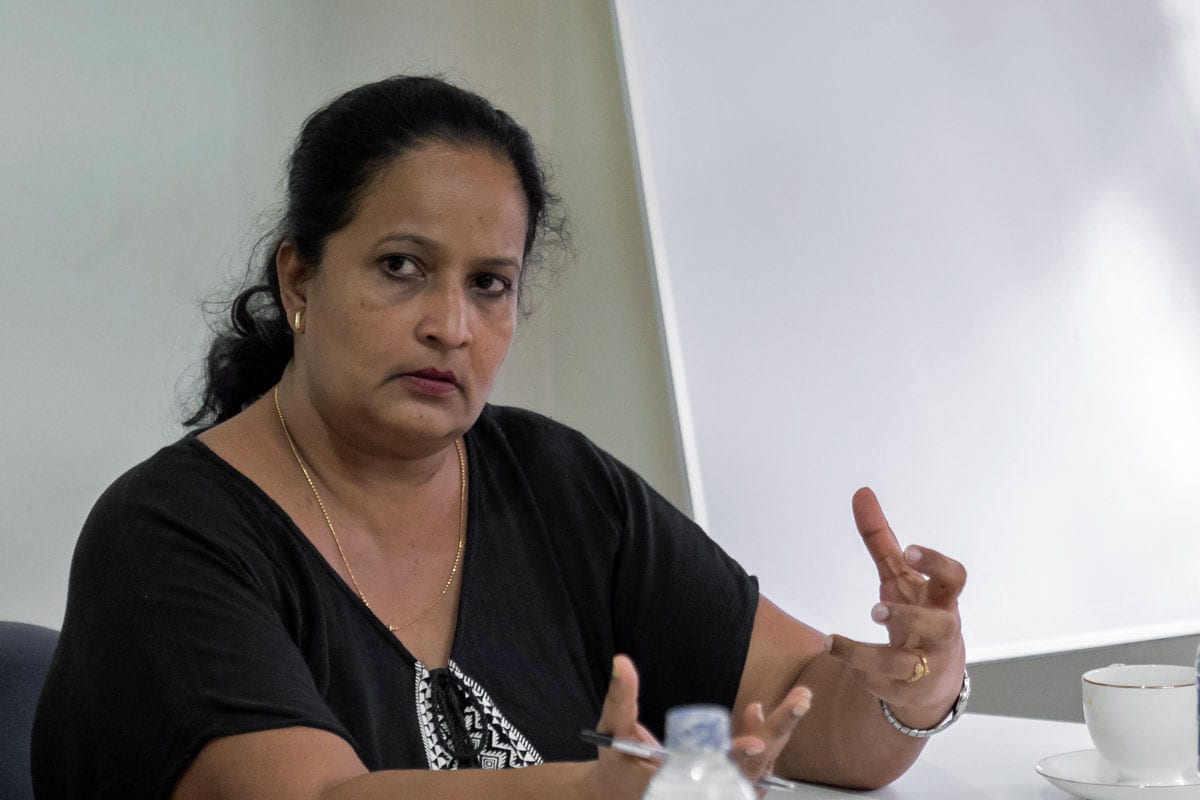
Jan 22, 2019
Just outside Sri Lanka’s Bandaranaike International Airport, where more than 2 million tourists start their vacations each year, a different reality unfolds in the Katunayake export processing zone (EPZ).
There, thousands of garment workers take their places in factories guarded by electrified fencing to begin long days for little pay, forced to endure grueling production cycles with managers refusing to grant even unpaid sick leave. Sexual harassment and other forms of gender-based violence are a daily part of the job, they say, often with economic repercussions.
“Women are made to stand and work and when engineers fix machines, they touch the women,” says PK Chamila Thushari, program coordinator for the Dabindu Collective union. “When they complain, engineers don’t fix the machines, which means they can’t meet their quota. The only they way they can earn a good living is to hit the targets set by the bonus,” she says, speaking through a translator.
Garment workers are paid a bare $84 a month—or less, if they are employed outside the EPZs—yet apparel exports generated $4.8 billion for Sri Lanka in 2017, a 3 percent increase compared with the previous year. At 47 percent of total exports in 2016, apparel and textiles are the backbone of the country’s trade.
Yet only 2.8 percent of the revenue comes to the garment workers who cut, sew and package clothes for international brands, says Thushari, and most are malnourished, suffer from anemia, and struggle to feed and educate their children. The cost of living for a family of four—without rent—is $549 a month in urban areas like Colombo, near the Katunayake EPZ.
Workers Fear Reporting Gender-Based Violence at Work
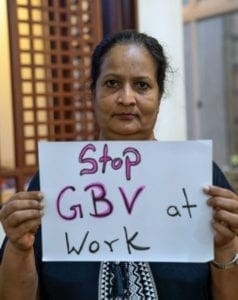
Gender-based violence in garment factories is so common “people have kind of become numb to it.” Credit: Solidarity Center/Sean Stephens
Dabindu (drops of sweat in Sinhalese), launched in 1984 as a local organization to advocate and promote women workers’ rights, transitioned to become a union last year at the request of its members, says Thushari, who has been with the organization for 22 years. In addition to advocating for improved wages, the union is focused on educating women about their rights to a workplace free of gender-based violence.
As is the case at workplaces around the world, Dabindu has found one of the biggest hurdles to addressing sexual harassment and other forms of gender-based violence is women’s fear of reporting it.
Also, “because this happens so often in garment factories, people have kind of become numb to it,” says Thushari. Dabindu creates awareness programs and trains workers to become leaders on the issue. Because workers are fearful of speaking to employers or the police about abusive incidents, the worker-leaders share their experiences with the union, which takes the information to factory management, multinational brands and others so they may address the problem.
Importantly, it took time for Dabindu to develop trust among the workers so they would feel comfortable sharing their experiences with the union, says Thushari.
Connecting Garment Workers Across the Country
Since the end of the country’s 26-year civil war in 2009, which claimed roughly 100,000 lives, Tamil women, many widowed, have journeyed from the north for employment in garment factories at Katunayake and other southern areas with Sinhala majorities. Many experience difficulties because they do not understand the language, and garment factories often require Tamil women to meet higher targets, says Thushari.
Dabindu is working to foster better understanding between the Sinhala and Tamil garment workers by holding daylong “youth camps,” bringing the women together in a relaxed setting, and also is sponsoring trips for garment workers to war-torn northern Sri Lanka to enable women see the difficult living conditions there that are driving Tamil women to seek employment far from their homes. The union is expanding its program to offer women in the north a chance to travel to the south.
“Sometimes, workers are in tears when they see the difficult living conditions, and that brings them closer to each other,” says Thushari.






